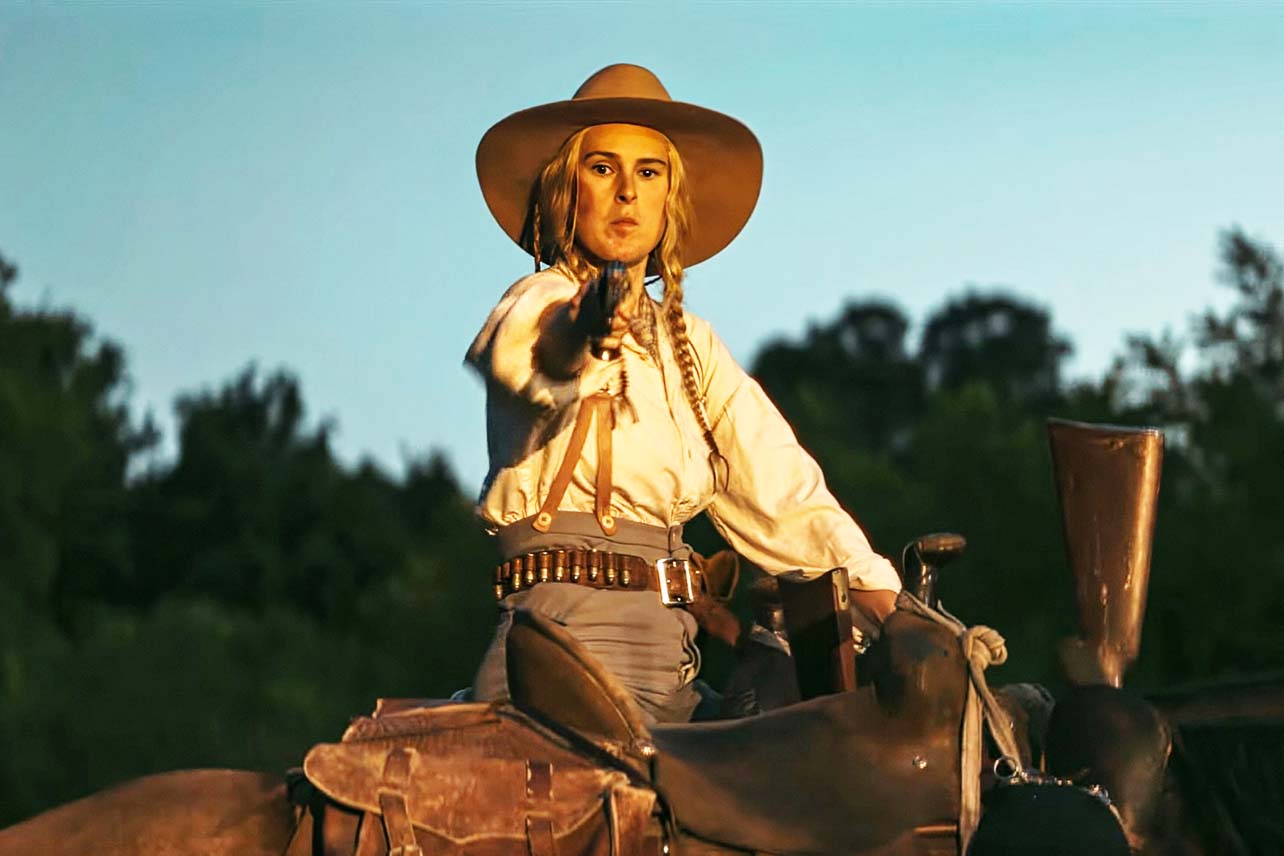A new Western film titled Trail of Vengeance, now streaming on Hulu, features Rumer Willis in the lead role as a widow seeking revenge in a post-Civil War setting. Directed and co-written by Johnny Remo, the film attempts to deliver a gripping narrative filled with familiar tropes of the genre. However, it struggles to rise above its low-budget constraints and repetitive storytelling.
The plot unfolds in 1875 Kentucky, where former Confederate Colonel Davis, portrayed by Jeff Fahey, is embroiled in a political cover-up. As he campaigns for a Senate seat, he employs two dangerous men, Frank and Zeke, to eliminate witnesses of war crimes he orchestrated. This scenario sets the stage for a tale of vengeance that lacks depth and originality.
Willis plays Katherine, who lives a seemingly idyllic life with her husband Caleb. The couple’s happiness is shattered when Caleb, who harbors a hidden past as a Pinkerton operative, is brutally murdered by Frank and Zeke while attempting to secure a replacement shovel. Following her husband’s death, Katherine discovers a letter urging her to seek out Caleb’s former colleague, Scobell, for assistance. Driven by grief and a desire for revenge, Katherine becomes a determined force, preparing to confront her husband’s killers.
Despite the film’s intentions to explore themes of morality and justice, it falls short of delivering a nuanced perspective. The script, co-written by Remo and Daniel Backman, presents a simplistic dichotomy of good versus bad, failing to engage with the moral complexities of vengeance. The dialogue often veers into cliché territory, making it predictable and laborious.
Katherine’s character, while positioned as a woman of strength, is ultimately constrained by the film’s limitations. The narrative implies her empowerment through her ability to take up arms, yet it does not explore the broader implications of her actions. The film’s portrayal of women in a male-dominated world feels superficial and fails to resonate on a deeper level.
The performances, particularly by Gbenga Akinnagbe as Scobell, provide some grounding in an otherwise over-the-top production. Akinnagbe’s restrained approach contrasts with the exaggerated portrayals of the film’s antagonists, highlighting the unevenness in the cast’s delivery.
Visually, the film does not impress. The locations appear recycled, and the cinematography lacks creativity, contributing to an overall sense of monotony. The climax, a poorly executed shootout, leaves viewers yearning for more engaging action and stronger storytelling.
In summary, Trail of Vengeance aims to offer a thrilling revenge narrative but ultimately becomes a tedious experience. Its reliance on familiar Western tropes and lack of character development hinder its potential. For those seeking a substantial cinematic experience, it may be best to skip this offering.
In the landscape of modern Westerns, there are far more engaging options available. This film, with its repetitive themes and lackluster execution, serves as a reminder that not all tales of vengeance are worth telling.
